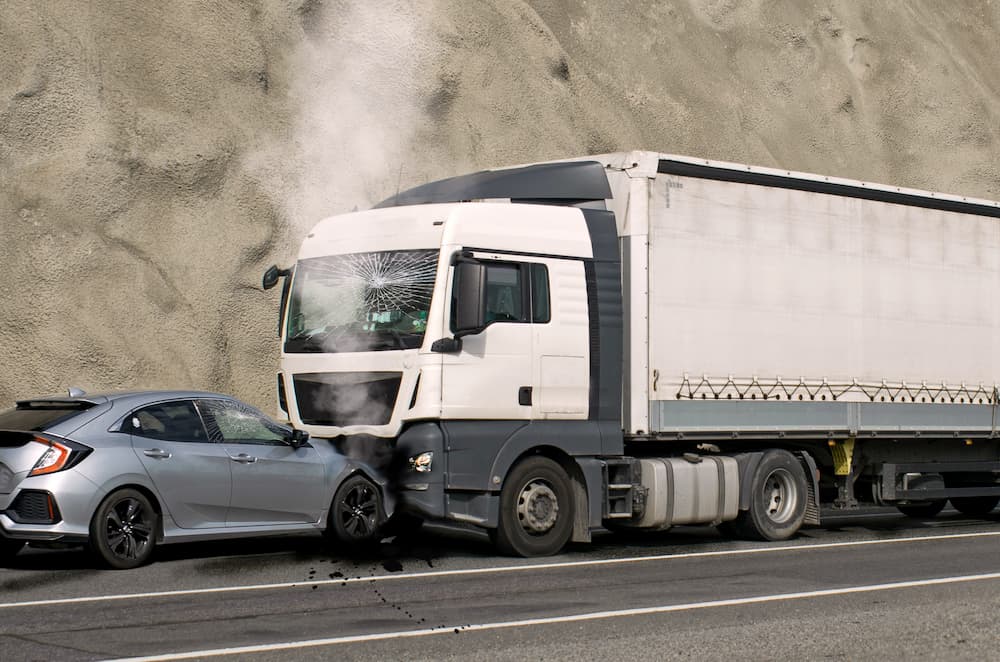- What is vendor liability insurance?
- Why do you need vendor liability insurance?
- What is a certificate of insurance for vendors?
- When do you need a certificate of insurance?
- What kind of insurance do you need as a vendor?
- How much does vendor insurance cost?
- How much vendor liability insurance coverage do you need?
- Which insurers sell vendor liability insurance?
- How do you get vendor liability insurance?
- What our expert says
- FAQ
What is vendor liability insurance?
Vendor liability insurance is a form of small business insurance offered by many carriers. At minimum, a policy protects from third-party claims of injury or property damage, but depending on the insurer, it can also provide additional coverages.
Unlike some types of small business insurance, vendor insurance terms can range from one day to a year. Coverage is split into per occurrence, or person, and aggregate, or per event, typically with limits of $1 million, $2 million or $3 million.
Small business policies for vendors could include general liability, product liability, commercial auto, professional liability, or other types of coverage such as worker’s compensation or commercial auto. Many insurers can tailor these policies to your needs with optional add-ons or endorsements or by altering coverage limits; others have policies tailored for specific types of vendors.
Who is a vendor?
A vendor is a business that sells goods or demonstrates, exhibits, promotes or provides services and products, typically at an event or venue like a craft show or a convention space. But it can also include vendors with a physical location as well. Examples include:
- A food truck owner who sells sandwiches at local parks and outside event spaces
- The baker who supplies the bread used by the food truck
- A jewelry maker who sells their items at craft fairs and pop-ups
- An entrepreneur who demonstrates their products at a trade show
- The company that provides sound equipment for the show
- A candle and soap maker who sells their goods at farmers’ markets
The definition of a vendor can be quite broad, says William L. Pope, a mentor with SCORE, an organization that helps connect small business owners with mentors and is partially funded by the Small Business Administration. A retailer and wholesaler could be liable if a product injures someone, as they are both in the “stream of commerce,” each having played a part in putting the product in the consumer’s hands.
Why do you need vendor liability insurance?
In short, you need vendor liability insurance to protect your small business from financial risk.
“Having adequate insurance is very important for every business, including small
businesses,” Pope says. “Insurance is a mechanism for financing the potential cost of claims. Without adequate insurance, uninsured claims have the very real possibility of putting a firm out of business. Adequate insurance helps a business stay in business.”
If you’re participating in an event, the venue or event organizer probably will require participating businesses to have liability coverage, set minimum coverage limits, and ask for a certificate of insurance (COI). If you have a permanent location, your landlord will likely require you to have some form of liability insurance, and like an event organizer, may set minimum coverage requirements.
Even if vendor liability insurance isn’t required, it may be worth investigating to provide you with financial protection should the worst happen.
What is a certificate of insurance for vendors?
A certificate of insurance is proof from your insurance company that you have coverage. It can contain information such as the type of policy, coverage dates, coverage limits, the name of the policyholder, additional insureds (if any), exclusions and other information.
When do you need a certificate of insurance?
You may need a certificate of insurance if you’re participating in an event and the venue or organizer requires you to be insured. A certificate of insurance would provide this proof. Without this, you may not be allowed to participate.
Some landlords and state or local governments may also require you to have a certificate of insurance.
What kind of insurance do you need as a vendor?
Liability insurance is just one type of coverage that small businesses like vendors may require. Your needs are contingent upon your business type, the goods or services provided, the number of employees you have, and other factors. Some of the most common forms of small business insurance are:
- General liability insurance. Sometimes referred to as commercial general liability (CGL), this is one of the most common types of small business insurance and covers property and bodily damage to others (not you or your employees). It can also cover medical payments to others and personal and advertising injury, such as libel, slander or unauthorized use of personal likeness.
- Commercial property insurance. This covers your belongings, such as equipment, inventory, and a space or building that you own or are renting. It may also include business interruption coverage that would replace lost income because of a covered event.
- Professional liability insurance. Also known as errors and omissions (E&O) insurance, this protects you in the event of mistakes made while providing a service. For example, if you’re an accountant and make an error that costs the client money, this would cover you if the client sues.
- Commercial umbrella insurance. An umbrella policy will provide coverage beyond the coverage limits in your CGL. It doesn’t change what you are covered against; it only provides additional funds.
- Commercial auto insurance. This provides insurance for your company’s vehicles and employees while conducting business. While standard policies may not cover rented vehicles or personal vehicles used for business, there are usually options to add that coverage.
- Product liability insurance. This protects you if your products injure someone or cause property damage. This is limited to the damage your products cause.
- Business owner’s policy (BOP). A BOP provides several different types of coverage in one policy. Many BOPs will provide some level of liability, business property and business interruption coverage. Depending on the insurance company, there may be options to add other coverages as endorsements.
- Workers' compensation insurance. While a general liability policy gives you protection if a third party, such as a customer, is injured in an accident, workers’ compensation protects you if an employee is injured on the job. This can cover lost wages and medical costs for the injured employee. If you have employees, even if they’re friends or family, you will likely be required to carry this type of insurance.
- Cyber insurance. This covers you in the event of a cyber incident or attack, such as a data breach, ransomware or if your system becomes infected with malware. It can cover both you and anyone whose data is compromised as a result of a covered incident.
- Liquor liability insurance. Sometimes called dram shop insurance, it provides coverage for alcohol-related incidents (property damage, assaults, DUI, alcohol poisoning, etc.) for businesses that sell or serve alcohol.
How much does vendor insurance cost?
How much vendor insurance costs will depend on several factors, such as your policy limits, the length of the policy, and what coverages are included. Other factors include the size of your business, the risk category of your industry, the number of employees you have – if any – and the type of equipment you own. In general, the more that is covered, the higher the premium.
Insureon lists the average insurance costs for a food vendor as:
| Type of coverage | Cost per month |
|---|---|
| General liability | $31 |
| Business owners policy | $60 |
| Workers’ compensation | $101 |
How much vendor liability insurance coverage do you need?
Vendor liability insurance has two coverage amount limits: per occurrence (single claim) and aggregate (all claims). They are typically available in million-dollar increments.
“Standard limits start at $1,000,000 per occurrence and $2,000,000 aggregate,” Melsopp says.
If you’re participating in an event, the venue or organizer should specify what their required coverage limits are. If not, Melsopp suggests talking to your insurance broker for guidance.
Below are some factors to consider when determining how much liability coverage you need:
- Size of business. Larger businesses often have larger insurance needs, especially if they have employees or own or lease vehicles and equipment.
- Type of business. The more hazardous the products or operations, the more likely it is for larger and more frequent claims, Pope says.
- Value of your business. This is how much a buyer would pay to purchase your business.
- Net worth of your business. This is your equity, or the business’s total assets, minus all its liabilities.
- “Sleep insurance.” This is the coverage limit where you feel you are best insured. An agent can help you determine this.
Which insurers sell vendor liability insurance?
There are a lot of insurance companies that sell liability coverage for vendors. Here are just a few to consider:
- Hiscox. Hiscox is a small business insurance specialist. It offers several types of policies that could be useful to vendors, including general liability, commercial auto, BOPs and short-term liability.
- Liberty Mutual. This carrier sells both personal and commercial lines of insurance. One small business policy of interest may be its inland marine policy, which can cover fine art and antiques while they’re in transit.
- Progressive. Like Liberty Mutual, Progressive offers numerous policies for vendors, including coverage tailored for food trucks that includes both commercial auto and general liability.
- State Farm. State Farm only sells its products through its agents, so the best way to find out what policies and coverages would work best for you is to use its agent-locator tool on its website and app.
- The Hartford. In addition to its standard small business policies, The Hartford offers policies specifically for food and craft vendors, which combine general liability, commercial property and workers’ compensation.
How do you get vendor liability insurance?
Whether you’re looking for your first vendor liability insurance policy or want to switch carriers, you can purchase vendor insurance in several ways. Some carriers only provide quotes and sell policies online or by calling the insurer directly. Others will steer you to a local agent, who can help you with a quote and policy management.
One decision you’ll want to make is whether you want an annual policy or a short-term policy. Melsopp said, “While year-round coverage is usually the preferred option, there are one-day special event insurance options for those just starting out and are in test-and-learn mode where a short-term vendor liability policy would make sense.”
When shopping around, the Small Business Administration recommends that you look at several insurance companies, comparing premiums, benefits and coverage. It also suggests reviewing your coverage annually to ensure it meets your requirements.

What our expert says
FAQ
What is a vendor's additional insured endorsement?
A vendor’s additional insured endorsement is when you add another party to your policy. This means your policy would also provide coverage for them. For example, if you have a booth at a craft fair, the organizer may ask that you add them to your policy as an additional insured party.
In this scenario, if something happened and you and the organizer were sued, you would both be covered under the endorsement. However, an additional insured endorsement isn’t meant to replace the organizer’s liability insurance, and the endorsement may not provide them with the same coverage limits you have under your policy.
Do I need one-day vendor event insurance?
You may not need one-day vendor event insurance if you already have liability coverage under an existing policy. However, if an event venue requires one-day insurance – and you either don’t have it or don’t have the minimum coverage amount required – you may need to purchase a one-day vendor insurance policy (multi-day coverage is available, too). Several carriers offer this kind of small business insurance.
Do I need insurance to sell at a farmers' market?
Whether you are required to have insurance to sell at a farmers market will likely depend on the organizer and the venue. The Farmers Market Coalition (FMC), a nonprofit organization, recommends that vendors have at least a general liability policy that will cover bodily injury and property damage claims.
The Farmers Market Legal Toolkit, a partnership between the FMC, the Center for Agriculture and Food Systems at Vermont Law School, and the Northeast Organic Farming Association of Vermont, recommends that markets require vendors to carry insurance to minimize their liability exposure.
What’s the difference between vendor insurance and general business insurance?
Vendor insurance is designed for people who do business at public and third-party events like fairs and farmers’ markets as well as conventions and expositions. It protects company finances from liability claims from injury or death or property damage, up to policy coverage limits. Depending on the carrier, vendor insurance may also include other forms of small business coverage.
General business insurance can refer to a number of coverage types for small businesses, ranging from general liability insurance to workers’ compensation to commercial auto insurance.






